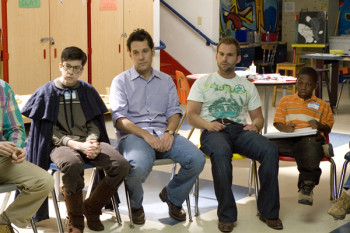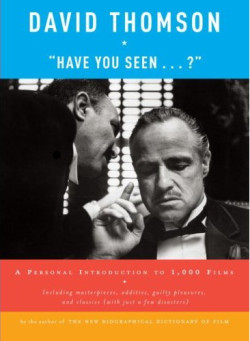Box Office Power Rankings: November 14-16, 2008
 Does it make sense to get out of the way of a certain blockbuster? Or should studios try to tap into a market being unserved by that which every human is required to see on its opening weekend? There are certainly examples of effective counter-programming. Mamma Mia! found a $28-million opening-weekend audience despite The Dark Knight’s $158-million debut. It has earned more than $143 million in the United States. Yet the numbers suggest that studios were wise to avoid putting any wide releases against Quantum of Solace.
Does it make sense to get out of the way of a certain blockbuster? Or should studios try to tap into a market being unserved by that which every human is required to see on its opening weekend? There are certainly examples of effective counter-programming. Mamma Mia! found a $28-million opening-weekend audience despite The Dark Knight’s $158-million debut. It has earned more than $143 million in the United States. Yet the numbers suggest that studios were wise to avoid putting any wide releases against Quantum of Solace.

 For the first time since fall 2006, I updated the
For the first time since fall 2006, I updated the  It was odd to read these two things within a few minutes of each other.
It was odd to read these two things within a few minutes of each other.  The consensus that Kevin Smith’s Zack and Miri Make a Porno and Clint Eastwood’s Changeling were poor performers – the weakest Halloween weekend in a decade! – certainly isn’t based on the track records of the filmmakers. Smith’s bawdy comedy debuted with a little more than $10 million, while Eastwood’s missing-child drama brought in $9.4 million in expanded release. Those numbers might not be good for that particular weekend (compared to previous years), but they’re in line with Smith’s and Eastwood’s recent careers.
The consensus that Kevin Smith’s Zack and Miri Make a Porno and Clint Eastwood’s Changeling were poor performers – the weakest Halloween weekend in a decade! – certainly isn’t based on the track records of the filmmakers. Smith’s bawdy comedy debuted with a little more than $10 million, while Eastwood’s missing-child drama brought in $9.4 million in expanded release. Those numbers might not be good for that particular weekend (compared to previous years), but they’re in line with Smith’s and Eastwood’s recent careers. David Thomson’s “Have You Seen … ?” A Personal Introduction to 1,000 Films is the book that I’d been waiting for from the author of the Biographical Dictionary of Film. And I can’t imagine that I’m alone among his frustrated fans in being disappointed that his new tome reveals that the faults of his seminal, agitating Dictionary lie with the author and not with the constraints of that book.
David Thomson’s “Have You Seen … ?” A Personal Introduction to 1,000 Films is the book that I’d been waiting for from the author of the Biographical Dictionary of Film. And I can’t imagine that I’m alone among his frustrated fans in being disappointed that his new tome reveals that the faults of his seminal, agitating Dictionary lie with the author and not with the constraints of that book. The theatrical success of High School Musical 3 begs a question: Was Disney too slow to capitalize on the success of the original, which drew an audience of nearly 14 million the first two nights it aired in January 2006? High School Musical 2, after all, got 17 million pairs of eyes with its American television premiere. Maybe it was about building the brand, but that seems like a lot of ticket cash foregone to me. With an average movie-ticket price approaching $7 (according to the National Association of Theatre Owners), the second sequel got about 6 million asses in seats in its opening weekend. Senior Year also topped this week’s Box Office Power Rankings by a wide margin, and it was the only release in the top 10 to be Rotten Tomatoes-approved “fresh.”
The theatrical success of High School Musical 3 begs a question: Was Disney too slow to capitalize on the success of the original, which drew an audience of nearly 14 million the first two nights it aired in January 2006? High School Musical 2, after all, got 17 million pairs of eyes with its American television premiere. Maybe it was about building the brand, but that seems like a lot of ticket cash foregone to me. With an average movie-ticket price approaching $7 (according to the National Association of Theatre Owners), the second sequel got about 6 million asses in seats in its opening weekend. Senior Year also topped this week’s Box Office Power Rankings by a wide margin, and it was the only release in the top 10 to be Rotten Tomatoes-approved “fresh.” Oliver Stone’s W. didn’t win this week’s Box Office Power Rankings, but it did better in every measure than I expected: $10.5 million in box office (fourth place), $5,175 per theater (third), 55 on Rotten Tomatoes (fourth), 56 on Metacritic (fourth). Consistency can pay off, and all that led to a second-place overall finish, behind the just-ahead-in-every-category The Secret Life of Bees (third, first, second, third). It’s curious that the critical reception to W. has been so … bland. Nobody hated it, and only Roger Ebert gave it four stars.
Oliver Stone’s W. didn’t win this week’s Box Office Power Rankings, but it did better in every measure than I expected: $10.5 million in box office (fourth place), $5,175 per theater (third), 55 on Rotten Tomatoes (fourth), 56 on Metacritic (fourth). Consistency can pay off, and all that led to a second-place overall finish, behind the just-ahead-in-every-category The Secret Life of Bees (third, first, second, third). It’s curious that the critical reception to W. has been so … bland. Nobody hated it, and only Roger Ebert gave it four stars. Quarantine won this week’s Box Office Power Rankings, and my first thought was that, with Rotten Tomatoes and Metacritic scores of 61 and 54, respectively, the horror flick would have done even better a few weeks ago. Sure enough, those scores would have secured an additional five points for Quarantine because of weaker competition. That got me thinking about dumping grounds – the conventional wisdom that early in the year and after the summer movie season, Hollywood drops its unwanted product on the market just to be rid of it. I decided to try to quantify the dumping ground.
Quarantine won this week’s Box Office Power Rankings, and my first thought was that, with Rotten Tomatoes and Metacritic scores of 61 and 54, respectively, the horror flick would have done even better a few weeks ago. Sure enough, those scores would have secured an additional five points for Quarantine because of weaker competition. That got me thinking about dumping grounds – the conventional wisdom that early in the year and after the summer movie season, Hollywood drops its unwanted product on the market just to be rid of it. I decided to try to quantify the dumping ground. In this campaign season, what can we learn from the performances of An American Carol and Religulous? The easy conclusion is that audiences aren’t real keen on such aggressively political material, with the two movies finishing ninth and 10th, respectively, in the weekend’s overall box office. The second easy conclusion is that conservatives are slightly hungrier for entertainment than people who don’t like religion. Neither is correct.
In this campaign season, what can we learn from the performances of An American Carol and Religulous? The easy conclusion is that audiences aren’t real keen on such aggressively political material, with the two movies finishing ninth and 10th, respectively, in the weekend’s overall box office. The second easy conclusion is that conservatives are slightly hungrier for entertainment than people who don’t like religion. Neither is correct. A common regret is watching blog-a-thons come and go with nary a contribution from Culture Snob. So I was overjoyed to see the
A common regret is watching blog-a-thons come and go with nary a contribution from Culture Snob. So I was overjoyed to see the